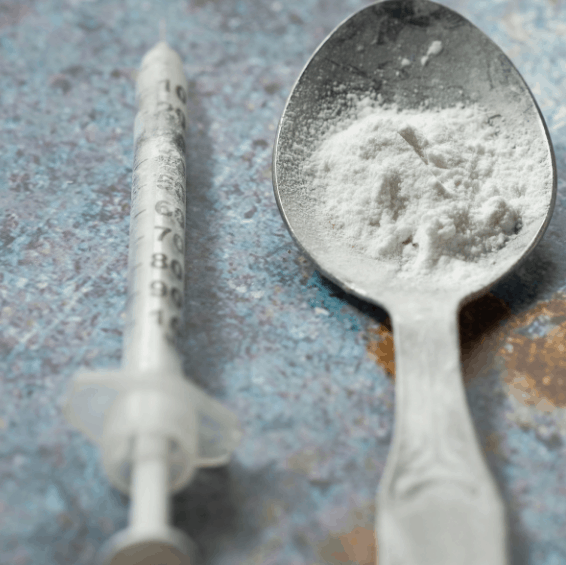The first step is to admit you have a problem. Once a person has accepted they are struggling with alcohol use disorder they can begin the healing process. Alcohol addiction is extremely common in the United States and a leading cause of health problems. The withdrawal symptoms experienced while detoxing from alcohol addiction can be unpleasant. This is why medically supervised detox at a treatment center is considered the safest way to undergo detox.
In a supervised setting, trained medical experts are on hand in case a person experiences any serious physical or mental health side effects during detox. We encourage you to reach out to Knoxville Recovery Center to speak with a specialist who can tell you more about the benefits of seeking detox in our treatment facility.
5 Things to Know Before Alcohol Detox
1. The Timeline
It can be useful to know in advance the symptoms you should expect to experience during the withdrawal process. In the first 24-48 hours, you’re likely to experience symptoms that include:
- Headache
- Upset stomach
- Tremors or uncontrollable shaking
In the range of 48-72 hours, you are likely to experience certain challenges that test both your mind and your body. At this stage, symptoms can feel particularly unpleasant but it’s important to keep in mind that once you get beyond this point you should feel much healthier. Once alcohol is out of your system, your mind and body can start the process of healing and repair. Your body and mind will take some time to reset and then your baseline should be at a much-improved state of well-being.
2. Common Withdrawal Symptoms
There are a wide range of symptoms that you may experience both physically and mentally during the withdrawal period. These can include:
- Increased anxiety
- Increased irritability or restlessness
- Nausea and/or diarrhea
- Increased heart rate
- Excessive sweating
- Uncontrollable movements
It’s less common but possible in severe situations of withdrawal that a person may experience symptoms that include:
- Very high body temperature
- Paranoia
- Delusions / Hallucinations
- Seizures
Because of these plausible but less common risks, it is recommended that those detoxing from an alcohol addiction do so in a medically-supervised environment as opposed to staying at home.
3. Medication-assisted Detox
In some circumstances, it’s reasonable to use medications to help ease the unpleasantness of withdrawal symptoms during detox. There are a few commonly used medications for this process including, benzodiazepines (benzos), naltrexone, acamprosate, and disulfiram.
Benzodiazepines are used to treat withdrawal symptoms during the initial phase of detox to help calm down both the mind and the body. Benzos are anti-anxiety medications and can also help with sleep issues. There are benzos with a short half-life and those that stay in the body considerably longer. They are prescribed based on individual circumstances.
Naltrexone can help reduce alcohol cravings during detox. This medication is also used to prevent people from having a drive to consume alcohol as it inhibits the pleasurable feelings associated with alcohol consumption and, moreover, can make someone who does drink feel physically ill. This medication can cause withdrawal symptoms and, therefore, is not typically used early in the detox process.
Disulfiram is used to prevent relapse. Those who drink while taking disulfiram will have an extremely negative reaction. Common undesirable effects include nausea, headaches, and an overall sense of physical unpleasantness. These effects are meant to act as a deterrent and can help break the cycle of abuse.
Acamprosate, sold under the name Campral, is prescribed to help rewire your brain after you quit drinking. This is important because your brain changes after years of alcohol consumption. Acamprosate is used to help your brain return to a more normal manner of everyday functioning.
4. Kindling
Each time a person relapses and goes through the detox process it is often more unpleasant. That’s why it’s ideal to break the cycle of addiction and put in place relapse prevention tools so that an effect known as “kindling” does not occur. This “kindling” experience causes clients to develop more challenges related to the detox process. The professionals who manage your detox need to keep this in mind when developing a treatment plan for those with a long history of repeated relapses as there are typically additional complications that need to be addressed.
5. Have a Game Plan
It’s important that you’re committed to quitting drinking and staying clean. Staying sober is easier said than done. That’s why at (Facility Name) we help clients develop life skills necessary for lasting sobriety.
Keep in mind that detox is only the beginning. Once you’re clean, you have to figure out ways to function in society without the crutch of alcohol. Mental health therapy can play an important role in addressing the root causes of your substance abuse. Speaking to counselors in individual therapy as well as group or family therapy can help you develop a safety net for when you face high-risk triggers in real-life situations.
Finding new meaning for your life is an essential part of returning to society after you’ve quit drinking. Activities you engaged in while under the influence are no longer going to feel the same. It’s a good idea to think about new hobbies that can help you find joy and avoid idle time that can leave space for negative thoughts patterns or the desire to engage in problematic behaviors. After detox, many clients find joy in activities that include art, music, writing, hiking, yoga, cycling, gardening, and other healthy hobbies.
Nutrition plays an important role in your well-being. Working with a nutritionist can help you get your mind back to positive thinking and your body back to a healthy diet.
Contact Knoxville Recovery Center to Learn More about Alcohol Detox
At Knoxville Recovery Center, we pride ourselves on providing the best possible care for our clients. We made use of cutting-edge, scientifically proven methods combined with holistic care to treat the whole person. If you or your loved one is struggling with alcohol addiction we encourage you to call us today and speak with a specialist who can inform you about the challenges faced during the detox and withdrawal process. It’s important to keep in mind that recovery is always possible.










